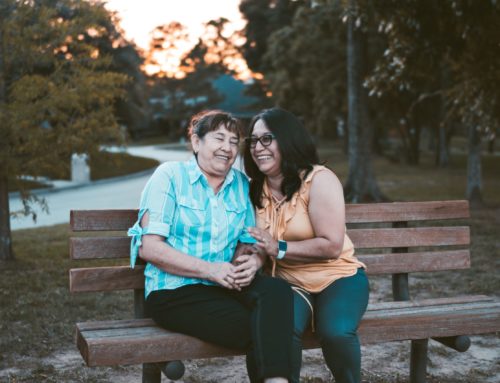Receiving a diagnosis of a serious illness can be stressful and confusing. What to expect? What comes next? Mapping out a clear plan for how to move forward can help make an anxious time less stressful.
Learning you are living with a health issue can be a confronting experience. After your diagnosis, it’s easy to feel overwhelmed and afraid. You may wonder how you will cope with what’s ahead in the days ahead.
One of the keys to dealing with your illness and your treatment regime is to learn to accept help and identify some of the simple, practical things your friends can do to make coping just a little bit easier.
Allow Your Family And Friends To Help You
Often family members and friends can run errands, accompany you to treatment sessions, help with transportation, cook meals and help you with child-minding and household chores.
Learn to accept their help graciously. Accepting their help gives those who care about you an opportunity to contribute at a difficult time.
A significant health diagnosis impacts the whole family and adds to their stress, especially your primary caregivers. Accepting help with chores, meals or child-care from friends or neighbours can go a long way in preventing caregiver burnout. You can give them a copy of this article, or use the information below to assist you to with conversation prompts and ideas.
Develop A Personal Coping Strategy
Just as everyone’s illness is different, their coping strategy should be too. Put your own coping strategy in place:
- Set aside some personal time every week.
- Practice relaxation techniques.
- Have a diet “break-out” day.
- Find a counsellor, friend, family member or spiritual adviser you can share your feelings honestly with.
- Organise your thoughts and feelings by keeping a journal.
- When faced with difficult decisions, make a list of pros and cons for each option.
- Find a source of emotional and spiritual support.
Try to remain involved with your work and leisure activities as much as you are able.
If You’re A Friend Looking To Help
While everyone’s needs are different, take some simple practical steps for showing support:
- Seek permission. Before giving advice, asking questions or visiting, check it is welcome. Always make it clear that saying ‘No’ is fine.
- Make future plans. Planning and booking fun or relaxing activities for the future gives your friend something to look forward to, particularly as treatments and recovery can be long and tiring.
- Be flexible. Your friend may need to cancel or reschedule. Don’t be insulted. Ensure your plans are easy to change just in case.
- Laughter is the best medicine. Be fun! A light conversation or an amusing story can bring relief during a tough day.
- Accept sadness. Don’t ignore or avoid uncomfortable feelings or topics.
- Touch base. Make time to call and check-in. Let your friend know when you plan to call. Also, let your friend know its okay not to answer the phone if they’re not feeling up to it.
- Offer to help. Often people find it difficult to ask for help with preparing meals, childcare or taking care of their pet. Your friend will probably appreciate the offer. If your friend declines your offer, though, don’t take it personally.
- Follow-through matters. If you offer to help, it is important you follow through on your commitment
- Treat them the same. Try not to let your friend’s condition affect your friendship. Treat your friend the same way you always have.
- Talk about something other than illness. People going through treatment often need a break or a diversion from the daily reality of their disease. Explore their hobbies or interests.
What To Say To Your Sick Friend
Never be afraid to talk with your friend. Avoidance is not a strategy. It is preferable to admit, “I don’t know what to say” than to let fear stop you from calling.
Some simple expressions of support can go a long way:
- What are you going to do?
- How can I help?
- I’m here for you.
- If you ever feel like talking, I’m here to listen.
A Circuit Breaker
The thing you enjoyed doing before your diagnosis is just as likely to help ease your tension and anxiety now. Whether that involves going to the movies, walking your dog, hiking, meeting with friends for coffee, your church, or a favourite hobby or pastime that recharges your batteries. Continue to enjoy it, and you will benefit from circuit-breaker. You may need help from friends and family to do this, so don’t be afraid to ask for or accept their help. Opening up to new coping strategies is a simple, yet practical approach to getting through this time.



